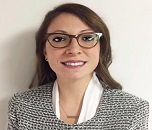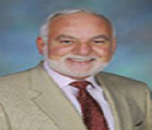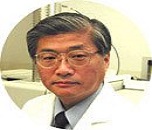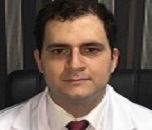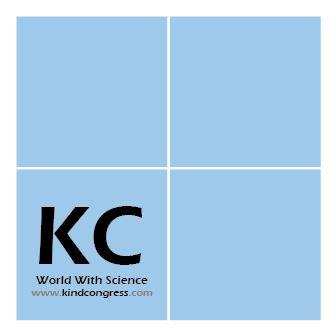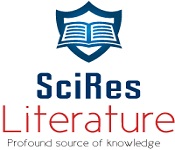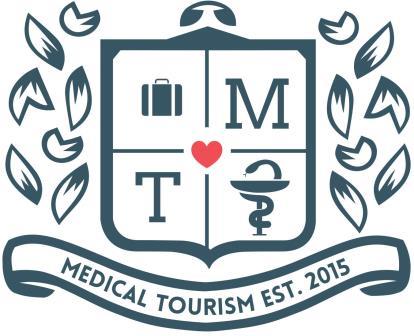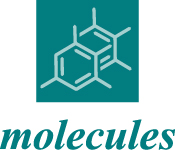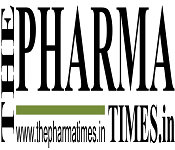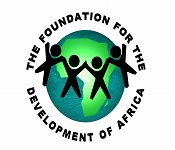Neuromuscular Conferences 2023
About the Conference
We are thrilled to bring together renowned experts, researchers, clinicians, and professionals from around the world to delve into the fascinating realm of 17th International Conference on neurology and neuromuscular disorders which is going to be held on November 04-05, 2023 in Toronto, Canada. This conference serves as a platform for exchanging knowledge, sharing groundbreaking research, and fostering collaboration to advance our understanding and treatment of these complex conditions.
Over the course of this conference, we will explore a wide range of topics, including the latest advancements in neurology, breakthroughs in the field of neuromuscular disorders, and innovative therapeutic approaches. Our esteemed speakers will deliver thought-provoking presentations, engaging discussions, and interactive workshops, providing valuable insights into the intricate workings of the brain, nervous system, and the connections to muscular function.
As we gather here, we aim to bridge the gap between scientific discovery and clinical practice. We believe that by fostering interdisciplinary dialogue and promoting collaboration among neurologists, geneticists, physiatrists, neurosurgeons, therapists, and other professionals, we can make significant strides in improving patient care and outcomes.
In addition to the enlightening sessions and presentations, this conference offers ample networking opportunities, where attendees can connect with like-minded individuals, forge new collaborations, and build lasting professional relationships. It is through these interactions that ideas are exchanged, new perspectives emerge, and innovative solutions are born.
Whether you are a seasoned expert in the field or an aspiring researcher, this conference provides a unique platform for growth, learning, and inspiration. We encourage you to actively participate, share your insights, and contribute to the vibrant discussions that will shape the future of neurology and neuromuscular disorders.
On behalf of the organizing committee, we extend our warmest welcome to all attendees, sponsors, and supporters. Let us embark on this journey together, united by our passion for advancing neurology and improving the lives of those affected by neuromuscular disorders.
Sessions / Tracks
Neurology
Neurology is the medical specialty dedicated to the diagnosis, treatment, and management of disorders affecting the brain, spinal cord, nerves, and muscles. Neurologists are trained to understand the intricate workings of the nervous system and its impact on bodily functions. They employ various diagnostic techniques, including imaging and neurological examinations, to identify and treat conditions such as stroke, epilepsy, multiple sclerosis, Alzheimer's disease, and Parkinson's disease. With advancements in research and technology, neurology continues to evolve, uncovering new insights into the complexities of the brain. Through their expertise, neurologists strive to improve patients' quality of life and contribute to the advancement of neurological knowledge.
Advances in Neurological Imaging Techniques
The session on "Advances in Neurological Imaging Techniques" will delve into the exciting progress made in the field of neuroimaging. This session will explore the latest imaging technologies and their applications in diagnosing and monitoring neurological disorders. Attendees will gain insights into novel imaging modalities, such as functional MRI (fMRI), diffusion tensor imaging (DTI), and positron emission tomography (PET), which provide valuable information about brain structure, connectivity, and function. The session will highlight the role of advanced imaging techniques in understanding neurodegenerative diseases, such as Alzheimer's and Parkinson's, and shed light on early detection and intervention strategies. Additionally, discussions will revolve around the integration of imaging data with other clinical and genetic information to enhance diagnostic accuracy and treatment planning. This session will foster collaboration among researchers, radiologists, neurologists, and neuroscientists, opening new avenues for translating cutting-edge imaging technologies into clinical practice, ultimately improving patient care in the field of neurology.
Neuromuscular Diseases: Diagnosis and Management
In the session on Neuromuscular Diseases: Diagnosis and Management, experts will explore the latest advancements in diagnosing and managing various neuromuscular disorders. Participants will gain insights into the clinical presentation and diagnostic tools for accurate identification of these conditions. The session will highlight multidisciplinary approaches, including medical, rehabilitative, and surgical interventions, aimed at optimizing patient outcomes. Discussions will encompass the challenges and best practices in providing comprehensive care for individuals with neuromuscular diseases, considering the diverse array of conditions within this category. Attendees will leave with a deeper understanding of effective strategies for diagnosis, treatment, and long-term management of neuromuscular disorders.
Neurogenetics and Inherited Neurological Disorders
Explore the fascinating world of neurogenetics and inherited neurological disorders in this insightful session. Gain a deeper understanding of the genetic basis of various neurological conditions, including neurodegenerative diseases, movement disorders, and neuromuscular disorders. Discover the latest advancements in genetic testing and counseling, unraveling the intricate connections between genes and neurological health. Delve into the promising field of gene therapies and emerging treatments that hold great potential for managing and even preventing inherited neurological disorders. Join renowned experts as they share groundbreaking research and shed light on the future directions of neurogenetics, paving the way for improved diagnosis, treatment, and patient care.
Neurological Rehabilitation and Neuroplasticity
The session on Neurological Rehabilitation and Neuroplasticity will delve into the strategies and interventions aimed at optimizing functional recovery in patients with neurological conditions. It will explore the concept of neuroplasticity, the brain's ability to reorganize and adapt, and its implications for rehabilitation. Topics covered will include evidence-based approaches to promote neuroplasticity, such as physical therapy, occupational therapy, speech therapy, and cognitive rehabilitation. The session will also highlight the use of innovative technologies, such as virtual reality and robotics, in neurorehabilitation. Attendees will gain insights into the latest advancements in the field and learn how to maximize neuroplasticity to improve outcomes and enhance the quality of life for individuals with neurological disorders.
Prevention, Acute Management, and Rehabilitation
This session will address the comprehensive approach to stroke, focusing on prevention, acute management, and rehabilitation. Experts in the field will share the latest strategies for reducing the risk factors associated with stroke, including lifestyle modifications and medical interventions. The session will delve into the acute management of stroke, discussing advancements in thrombolytic therapy, endovascular procedures, and neurointensive care. Additionally, rehabilitation techniques aimed at optimizing functional recovery and improving quality of life for stroke survivors will be explored. Attendees will gain valuable insights into stroke prevention, acute care protocols, and evidence-based rehabilitation practices, contributing to enhanced stroke management and patient outcomes.
Movement Disorders: Parkinson's disease and Beyond
Explore the fascinating world of movement disorders in our session on "Movement Disorders: Parkinson's disease and Beyond." Delve into the intricacies of Parkinson's disease, a neurodegenerative disorder characterized by motor symptoms such as tremors, rigidity, and bradykinesia. Discover the latest advancements in pharmacological and surgical interventions, including deep brain stimulation, offering relief to patients. But the session doesn't stop there – go beyond Parkinson's to explore other movement disorders like dystonia, essential tremor, and Huntington's disease. Gain insights into emerging therapies, cutting-edge research, and future directions in the field. Join us to broaden your knowledge and contribute to the ever-evolving landscape of movement disorder management.
Cognitive Disorders and Dementia
This session will delve into the intricate world of cognitive disorders and dementia, shedding light on the challenges faced by individuals affected by these conditions and the latest advancements in their diagnosis and management. Attendees will gain insights into the underlying mechanisms of cognitive decline, explore cutting-edge diagnostic tools and techniques, and learn about emerging therapeutic strategies aimed at improving the quality of life for patients. Discussions will encompass a broad spectrum of topics, including early detection, personalized treatment approaches, cognitive interventions, caregiver support, and the latest research breakthroughs in unraveling the complexities of cognitive disorders and dementia
Pediatric Neurology and Developmental Disorders
This session focuses on the unique challenges and advancements in the field of pediatric neurology and developmental disorders. Experts will discuss the diagnosis and management of various neurological conditions affecting children, including epilepsy, cerebral palsy, and neurodevelopmental disorders. Attendees will gain insights into the latest research and treatment strategies aimed at optimizing neurodevelopmental outcomes in children. Topics will include early intervention approaches, novel therapeutic interventions, and multidisciplinary care models for addressing the complex needs of pediatric patients. This session aims to foster collaboration and knowledge exchange among professionals dedicated to improving the lives of children with neurological disorders.
Emerging Therapies and Future Directions in Neurology
Explore the exciting realm of emerging therapies and future directions in neurology. This session will showcase groundbreaking advancements and innovative approaches that hold promise for revolutionizing the field. Discover cutting-edge neurostimulation techniques, novel drug therapies, gene therapies, and regenerative medicine strategies that are pushing the boundaries of treatment options. Engage in thought-provoking discussions on the potential of artificial intelligence, nanotechnology, and precision medicine in neurology. Gain insights into the latest research, clinical trials, and translational efforts aimed at addressing unmet needs and improving outcomes for patients with neurological disorders. Join us to shape the future of neurology through these transformative therapies and visionary approaches.
Stroke
Stroke is a medical emergency that occurs when blood flow to the brain is disrupted, leading to a sudden loss of brain function. It can result from a blockage in a blood vessel (ischemic stroke) or bleeding in the brain (hemorrhagic stroke). Symptoms may include sudden numbness or weakness in the face, arm, or leg, difficulty speaking or understanding speech, severe headache, and dizziness. Immediate medical attention is crucial to minimize brain damage and improve outcomes. Treatment options include clot-busting medications, surgical interventions, and rehabilitation. Preventive measures such as managing blood pressure, maintaining a healthy lifestyle, and addressing risk factors like smoking and high cholesterol can significantly reduce the risk of stroke.
Neuro-Treatment Methods
Neuro-treatment methods encompass a diverse range of approaches aimed at managing and improving neurological conditions. These methods include pharmacological interventions with targeted medications, surgical procedures such as deep brain stimulation, and rehabilitative therapies like physical and occupational therapy. Additionally, emerging techniques like neurofeedback, transcranial magnetic stimulation, and virtual reality-based therapies show promise in enhancing brain function and promoting recovery. Furthermore, advancements in gene therapy and stem cell research offer potential avenues for treating neurodegenerative disorders. A multidisciplinary approach combining these treatment methods, personalized care, and ongoing research efforts holds great potential in improving the lives of individuals affected by neurological conditions.
Neuropsychiatry
Neuropsychiatry is a specialized field that integrates the disciplines of neurology and psychiatry, focusing on the understanding and treatment of mental disorders with underlying neurological causes. It explores the intricate relationship between the brain and behavior, studying how neurological conditions can impact mental health and cognitive functioning. Neuropsychiatrists employ a multidimensional approach, combining neurological assessments, psychiatric evaluations, and neuroimaging techniques to diagnose and treat conditions such as traumatic brain injury, epilepsy, dementia, and neuropsychiatric disorders. By addressing the biological, psychological, and social factors influencing mental well-being, neuropsychiatry plays a crucial role in improving patient outcomes and enhancing our understanding of the complex interplay between the brain and psychiatric disorders.
Neurosurgery
Neurosurgery, a specialized branch of medicine, focuses on the surgical treatment of disorders affecting the nervous system. Highly skilled neurosurgeons perform intricate procedures to address conditions such as brain tumors, spinal cord injuries, epilepsy, vascular disorders, and congenital anomalies. With the aid of advanced surgical techniques, neuroimaging technologies, and navigation systems, neurosurgeons aim to relieve symptoms, restore function, and improve the quality of life for their patients. From delicate brain surgeries to complex spinal procedures, neurosurgery combines precision, innovation, and multidisciplinary collaboration to provide effective interventions and optimize patient outcomes in the ever-evolving field of neurosurgical care.
Psychology
Psychology is the scientific study of the human mind and behavior, encompassing a wide range of topics such as cognition, emotions, perception, personality, and social interactions. It explores how individuals think, feel, and behave, aiming to understand both normal and abnormal psychological processes. Psychology encompasses various theoretical perspectives and research methodologies, allowing psychologists to investigate diverse phenomena and develop evidence-based interventions. This field plays a crucial role in improving mental health, enhancing interpersonal relationships, promoting well-being, and addressing psychological disorders. By studying psychology, we gain insights into human experiences, motivations, and the intricate workings of the mind, ultimately contributing to a better understanding of ourselves and others.
Neuro-Oncology and Brain Tumors
This session will delve into the field of neuro-oncology, focusing on the intricate complexities of brain tumors. Experts in the field will discuss the latest advancements in diagnosing and treating various types of brain tumors, including gliomas, meningioma’s, and metastatic brain tumors. Topics will include innovative imaging techniques, molecular profiling, targeted therapies, and immunotherapy approaches. The session will also explore the challenges associated with tumor heterogeneity, tumor microenvironment, and the development of resistance to treatment. Attendees will gain valuable insights into emerging therapeutic strategies, personalized medicine approaches, and multidisciplinary care for patients with neuro-oncological conditions.
Multiple Sclerosis
Multiple sclerosis (MS) is a chronic autoimmune disease that affects the central nervous system (CNS), including the brain and spinal cord. It is characterized by inflammation, demyelination (damage to the protective myelin sheath), and the formation of scar tissue. Symptoms of MS vary widely and can include fatigue, difficulty walking, numbness or tingling, muscle weakness, vision problems, and cognitive impairment. The cause of MS remains unknown, but it is believed to involve a combination of genetic and environmental factors. While there is no cure for MS, various treatments aim to manage symptoms, slow disease progression, and improve quality of life for individuals living with this condition.
Neuropathology
Neuropathology is a specialized field of study that focuses on the examination and analysis of diseased or damaged nervous system tissues. It encompasses the investigation of various neurological disorders, such as neurodegenerative diseases, brain tumors, infections, and trauma. Neuropathologists utilize advanced laboratory techniques to examine tissue samples, identify abnormal cellular changes, and understand the underlying pathological mechanisms. Their findings contribute to the diagnosis, classification, and prognosis of neurological conditions, aiding in the development of targeted treatment strategies. By studying the structural and molecular alterations in nervous system tissues, neuropathology plays a crucial role in advancing our understanding of neurological diseases and improving patient care.
Neuro-immunology
Neuro-immunology is a rapidly evolving field that explores the intricate relationship between the nervous and immune systems. It investigates how immune responses in the central nervous system (CNS) impact neurological function and vice versa. The study of neuro-immunology encompasses a wide range of disorders, including multiple sclerosis, neuroinflammatory diseases, and autoimmune disorders affecting the nervous system. Researchers in this field seek to understand the mechanisms of immune-mediated damage to the CNS, explore the role of neuroinflammation in neurodegenerative diseases, and develop novel therapeutic approaches targeting the immune system. The interdisciplinary nature of neuro-immunology holds great promise for uncovering new insights into the complex interplay between immunity and the nervous system.
Neurodegenerative Diseases
Neurodegenerative diseases are a group of disorders characterized by the progressive degeneration and dysfunction of neurons in the brain and nervous system. These diseases, such as Alzheimer's, Parkinson's, Huntington's, and amyotrophic lateral sclerosis (ALS), have a significant impact on the quality of life and cognitive abilities of affected individuals. The underlying causes of neurodegenerative diseases vary, including genetic mutations, protein misfolding, and inflammation. Currently, there is no cure for most neurodegenerative diseases, but research efforts are focused on understanding their mechanisms, developing effective treatments to slow disease progression, and improving symptom management. Early detection, neuroprotective strategies, and advancements in precision medicine offer hope for the future.
Market Analysis
The Neurology market has been witnessing steady growth in recent years and is expected to continue expanding. Several factors contribute to this growth, including an aging population, increasing prevalence of neurological disorders, advancements in medical technologies, and a growing focus on early diagnosis and intervention.
Neurodegenerative diseases, such as Alzheimer's disease, Parkinson's disease, and multiple sclerosis, represent a significant portion of the Neurology market. These conditions pose substantial challenges to healthcare systems worldwide, driving the demand for effective treatments and disease-modifying therapies.
Additionally, advancements in neuroimaging techniques, genetic research, and molecular diagnostics have enhanced the ability to diagnose and understand various neurological conditions. This has opened new avenues for targeted therapies and personalized medicine in the field of Neurology.
The development of innovative therapies, such as disease-modifying drugs, gene therapies, and neurostimulation techniques, holds promise for improving patient outcomes and quality of life. Furthermore, the integration of digital health technologies, telemedicine, and remote patient monitoring in Neurology care has gained traction, providing opportunities for enhanced patient management and accessibility to specialized healthcare services.
It is important to note that market dynamics, including regulatory factors, reimbursement policies, and the competitive landscape, can influence the Neurology market. Ongoing research, clinical trials, and collaborations among pharmaceutical companies, biotechnology firms, and academic institutions continue to drive innovation in this field.
